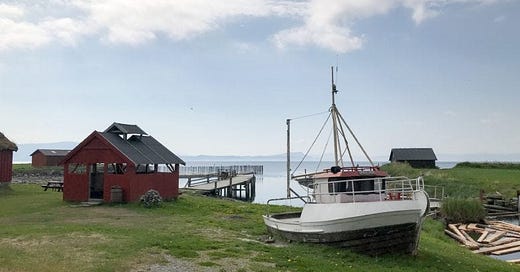All History is Local
I was recently talking to my friend and client Coleman Hampton of the Bell County Museum in Belton, Texas. Coleman and I are working…
I was recently talking to my friend and client Coleman Hampton of the Bell County Museum in Belton, Texas. Coleman and I are working together on reimagining the museum’s local history exhibits.
One of the things Coleman and I are talking about is something I believe is a critical, and sometimes overlooked, important aspect of local history: how the local past relates to the wider world. Local history in a local context is important for natives and long-timers, and they expect to see this when they come to your museum. But the larger statewide, national, and even international contexts are helpful both for the wider history “cause” (think the Value of History statement) and also for folks less familiar with a community’s past.
Presenting a local story in the context of wider regional, national, or international stories need not be an either/or proposition, as my colleague and renowned museum thinker Jasper Visser wrote today in a story on his blog, Universal Stories in the Local Museum:
Kystens Arv is primarily a locally relevant museum. It tells a national story and tries to address universal themes in its programming, but its audience and impact are predominantly local. Most museums are predominantly local.
Telling a universal story in a local museum requires a careful balancing act. For instance, most people do not relate to universal stories such as climate change and loss of biodiversity. These are too abstract, too far from their everyday lives. Instead, they wonder why they cannot grow tomatoes like they used to or where all the birds have gone, as Scott Cooper told me last year. This requires a different approach to storytelling.
Arnfinn Rokne of the Trondheim Science Centre mentioned something similar in the conference we hosted as part of the Making Museum the day after Kystens Arv. He called for locally relevant science centers. Such science centers make universal science locally relevant. Gravity is the same everywhere, but to explain how the laws of science have contributed to specific local circumstances demands another type of presentation.
That doesn’t mean universal and local stories are mutually exclusive. I believe they strengthen each other. The balancing act is between telling a universal story that may be abstract and a way of storytelling that local audiences can relate to.
Two things really stand out to me about Jasper’s post:
The first is the most obvious, the discussion isn’t just limited to the United States; local history museums in Europe (and, I presume, throughout the globe), are struggling with this concept as well.
The second is how local stories can impact more than just history museums — a science center in this case. Keep an eye on this space in the coming weeks for a discussion about this very concept as it relates to my home base of Nashville.
The former seems so simple a concept, but I’ve been to far too many local history museums that fail to seize the opportunity to put local history into the larger historical narrative.

Tip O’Neill once said, “All politics is local.” The same is true for history, is it not?
Please share your thoughts with me in the comments or by:
A twenty-year veteran of the nonprofit world, Bob Beatty is founder of The Lyndhurst Group, a history, museum, and nonprofit consulting firm providing community-focused engagement strategies for institutional planning, organizational assessments, and interpretive direction.




